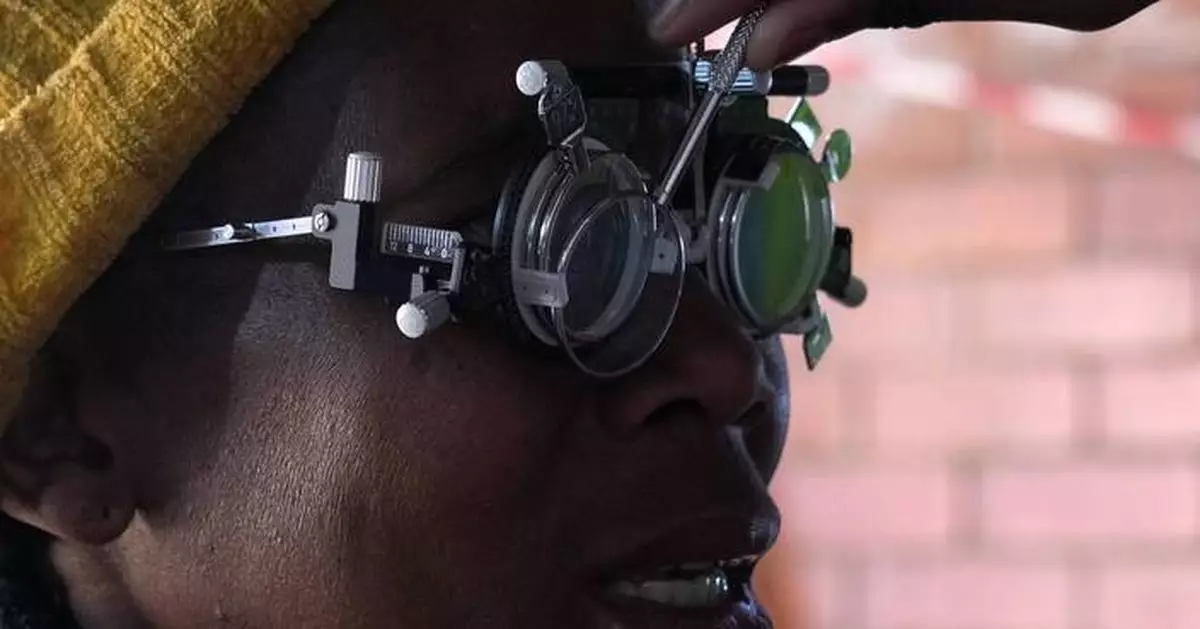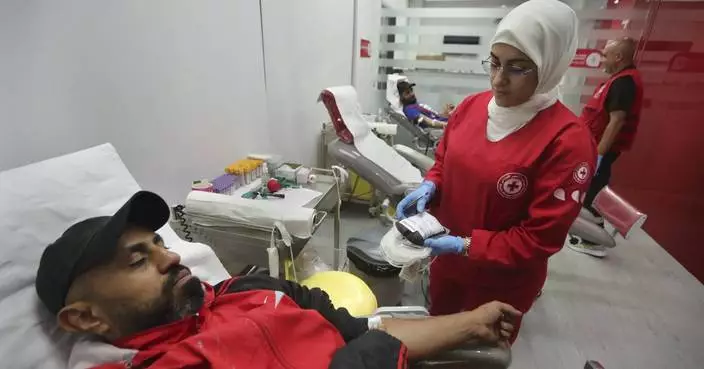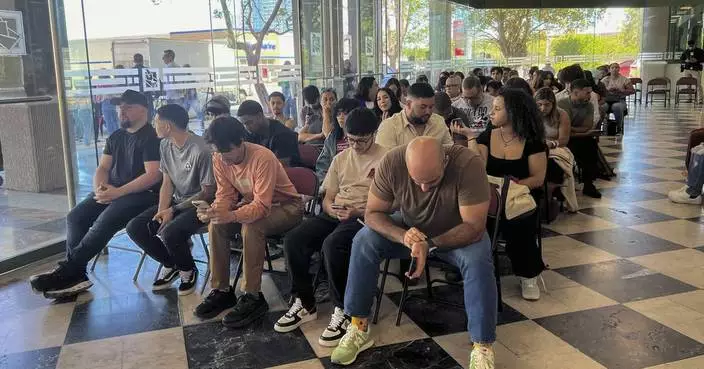JOHANNESBURG (AP) — Thethiwe Mahlangu woke early on a chilly morning and walked through her busy South African township, where minibuses hooted to pick up commuters and smoke from sidewalk breakfast stalls hung in the air.
Her eyes had been troubling her. But instead of going to her nearby health clinic, Mahlangu was headed to the train station for an unusual form of care.
Click to Gallery
JOHANNESBURG (AP) — Thethiwe Mahlangu woke early on a chilly morning and walked through her busy South African township, where minibuses hooted to pick up commuters and smoke from sidewalk breakfast stalls hung in the air.
A patient wearing her new pair of glasses on the Phelophepa eye clinic carriage, in Tembisa, east of Johannesburg, South Africa, Thursday, Aug. 22, 2024. (AP Photo/Themba Hadebe)
A Patient has an eye examined by a volunteer optometrist on the Phelophepa Train in Tembisa, east of Johannesburg, South Africa, Thursday, Aug. 22, 2024. (AP Photo/Themba Hadebe)
A patient walks around as he tests eye glasses outside the Phelophepa eye clinic carriage, in Tembisa, east of Johannesburg, South Africa, Thursday, Aug. 22, 2024. (AP Photo/Themba Hadebe)
Optometry students carry out an eye test for a patient, outside the Phelophepa eye clinic carriage, in Tembisa, east of Johannesburg, South Africa, Thursday, Aug. 22, 2024. (AP Photo/Themba Hadebe)
A patient has an eye examined by an optometry student, outside the Phelophepa eye clinic carriage, in Tembisa, east of Johannesburg, South Africa, Thursday, Aug. 22, 2024. (AP Photo/Themba Hadebe)
A patient eyes are tested for lenses to be made for a new pair of glasses outside the Phelophepa eye clinic carriage, in Tembisa, east of Johannesburg, South Africa, Thursday, Aug. 22, 2024. (AP Photo/Themba Hadebe)
An optometry student, carries out an eye test on a patient for a new pair of glasses to be made, outside the Phelophepa eye clinic carriage in Tembisa, east of Johannesburg, South Africa, Thursday, Aug. 22, 2024. (AP Photo/Themba Hadebe)
A patient has an eye examined by an optometry student, outside the Phelophepa eye clinic carriage, in Tembisa, east of Johannesburg, South Africa, Thursday, Aug. 22, 2024. (AP Photo/Themba Hadebe)
Patients queue for an eyes test, outside the Phelophepa eye clinic carriage, in Tembisa, east of Johannesburg, South Africa, Thursday, Aug. 22, 2024. (AP Photo/Themba Hadebe)
A healthcare worker stands at the door of the Phelophepa eye clinic carriage, in Tembisa, east of Johannesburg, South Africa, Thursday, Aug. 22, 2024. (AP Photo/Themba Hadebe)
Patients queue for an eyes test, outside the Phelophepa eye clinic carriage, in Tembisa, east of Johannesburg, South Africa, Thursday, Aug. 22, 2024. (AP Photo/Themba Hadebe)
A patient eyes are tested for lenses to be made for a new pair of glasses outside the Phelophepa eye clinic carriage, in Tembisa east of Johannesburg, South Africa, Thursday, Aug. 22, 2024. (AP Photo/Themba Hadebe)
A passenger train known as Phelophepa — or “good, clean, health" in the Sesotho language — had been transformed into a mobile health facility. It circulates throughout South Africa for much of the year, providing medical attention to the sick, young and old who often struggle to receive the care they need at crowded local clinics.
For the past 30 years —- ever since South Africa's break with the former racist system of apartheid — the train has carried doctors, nurses and optometrists on an annual journey that touches even the most rural villages, delivering primary healthcare to about 375,000 people a year.
The free care it delivers is in contrast to South Africa's overstretched public health care system on which about 84% of people rely.
Health care reflects the deep inequality of the country at large. Just 16% of South Africans are covered by health insurance plans that are beyond the financial reach of many in a nation with unemployment of over 32%.
Earlier this year, the government began to address that gap. President Cyril Ramaphosa in May signed into law the National Health Insurance Act, which aims to provide funding so that millions of South Africans without health insurance can receive care from the better-provisioned private sector.
But the law has been divisive. The government has not said how much it will cost and where the money will come from. Economists say the government will have to raise taxes. Critics say the country can’t afford it and warn that the system — yet to be implemented — will be open to abuse by corrupt officials and businessmen. They say the government should fix the public healthcare system instead.
For Mahlangu and others who look to the train for a rare source of free treatment, the situation at local health clinics is one of despair.
Long lines, shortages of medicines and rude nurses are some of the challenges at the clinics that cater for thousands of patients a day in Tembisa, east of Johannesburg.
“There we are not treated well,” Mahlangu said. “We are made to sit in the sun for long periods. You can sit there from 7 a.m. until around 4 p.m. when the clinic closes. When you ask, they say we must go ask the president to build us a bigger hospital.”
The health train has grown from a single three-carriage operation over the years to two, 16-carriage trains. They are run by the Transnet Foundation, a social responsibility arm of Transnet, the state-owned railway company.
When the train began in 1994, many Black people in South Africa still lived in rural villages with little access to health facilities. It was a period of change in the country. The train began as an eye clinic, but it soon became clear that needs were greater than that.
Now both trains address the booming population of South Africa's capital of Pretoria and nearby Johannesburg, the country's economic hub. One would spend two weeks in Tembisa alone.
“The major metros are really struggling,” said Shemona Kendiah, the train's manager.
But the traveling clinc is far from the solution to South Africa's healthcare problems.
Public health expert Alex van den Heever said there have been substantial increases in the healthcare budget and the public sector employment of nurses and doctors since the country's first democratic government in 1994. The health department's budget in Gauteng province, which includes Pretoria and Johannesburg, has grown from 6 billion rand ($336 million) in 2000 to 65 billion ($3.6 billion) rand now.
But van den Heever accused the African National Congress, the ruling party since the end of apartheid, of allowing widespread corruption to undermine the public sector, including the health care system.
“This has led to a rapid deterioration of performance," he said.
For South Africans who have witnessed the decline firsthand, it can be a relief when the health train pulls into town.
Mahlangu — with her new pair of glasses — was among hundreds who walked away satisfied with its services and already longing for the train's return next year.
Another patient, Jane Mabuza, got a full health checkup along with dental services. She said she hoped the train would reach many other people.
“Here on the train you never hear that anything has been finished,” she said.
For more news on Africa and development: https://apnews.com/hub/africa-pulse
The Associated Press receives financial support for global health and development coverage in Africa from the Gates Foundation. The AP is solely responsible for all content. Find AP’s standards for working with philanthropies, a list of supporters and funded coverage areas at AP.org.
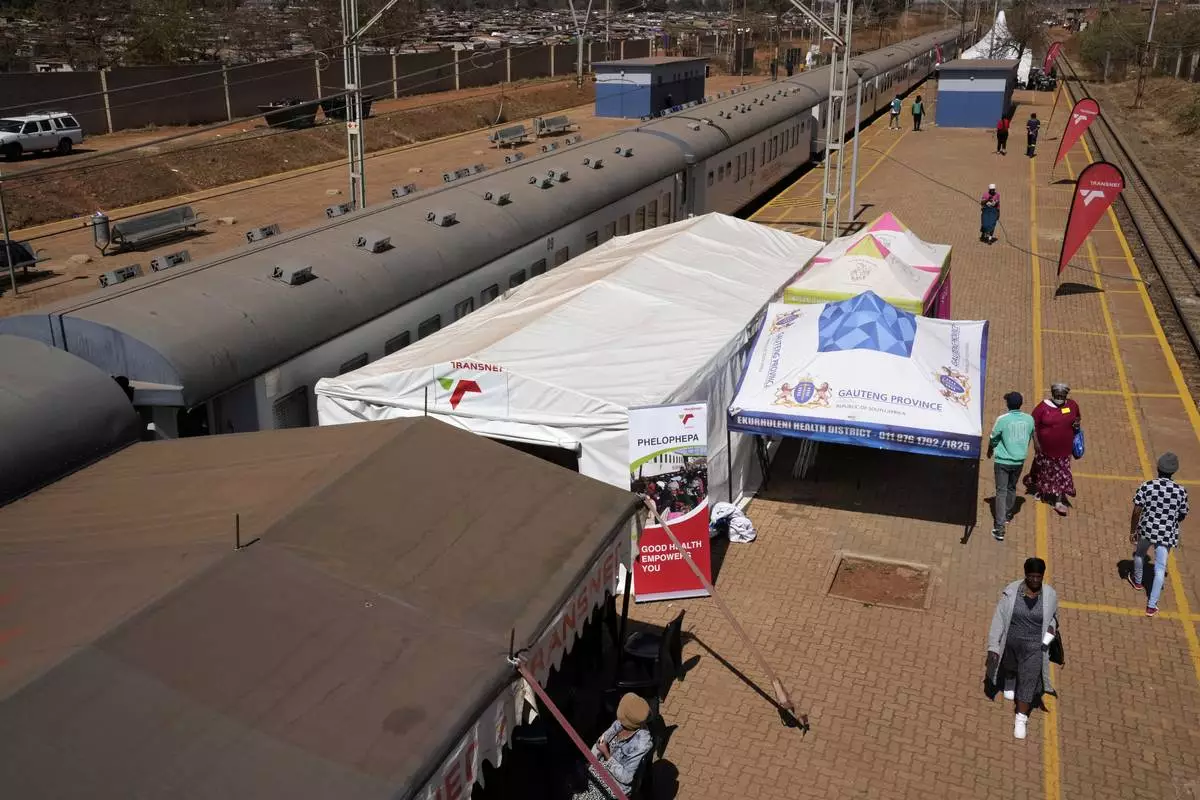
The Phelophepa train, is stationed at a station in Tembisa, east of Johannesburg, South Africa, Thursday, Aug. 22, 2024. (AP Photo/Themba Hadebe)
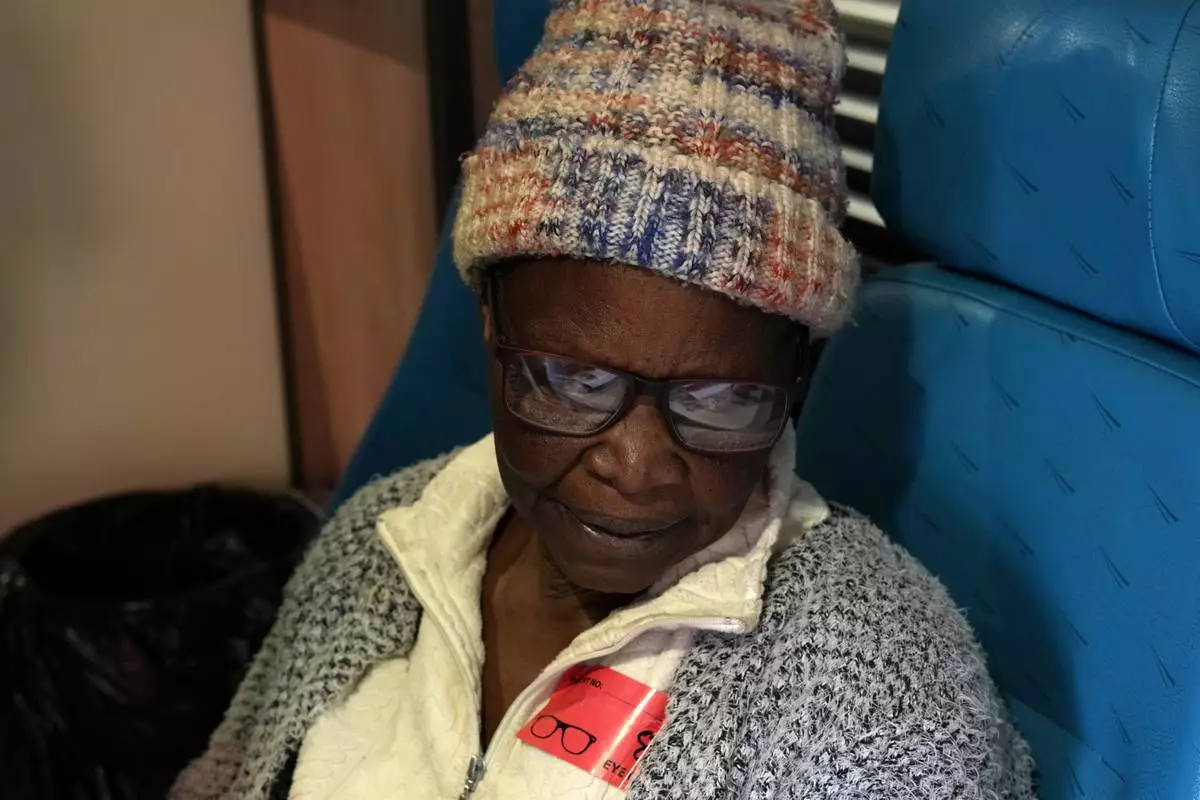
A patient wearing her new pair of glasses on the Phelophepa eye clinic carriage, in Tembisa, east of Johannesburg, South Africa, Thursday, Aug. 22, 2024. (AP Photo/Themba Hadebe)
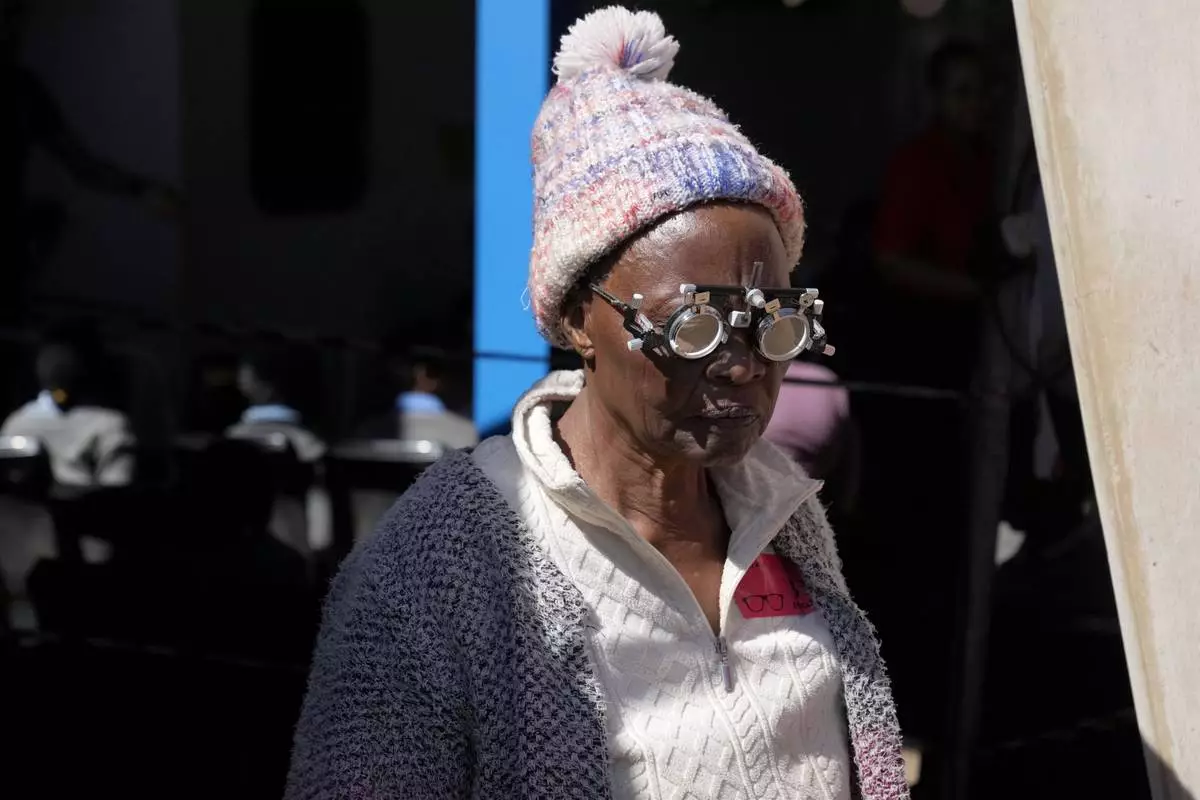
A Patient has an eye examined by a volunteer optometrist on the Phelophepa Train in Tembisa, east of Johannesburg, South Africa, Thursday, Aug. 22, 2024. (AP Photo/Themba Hadebe)
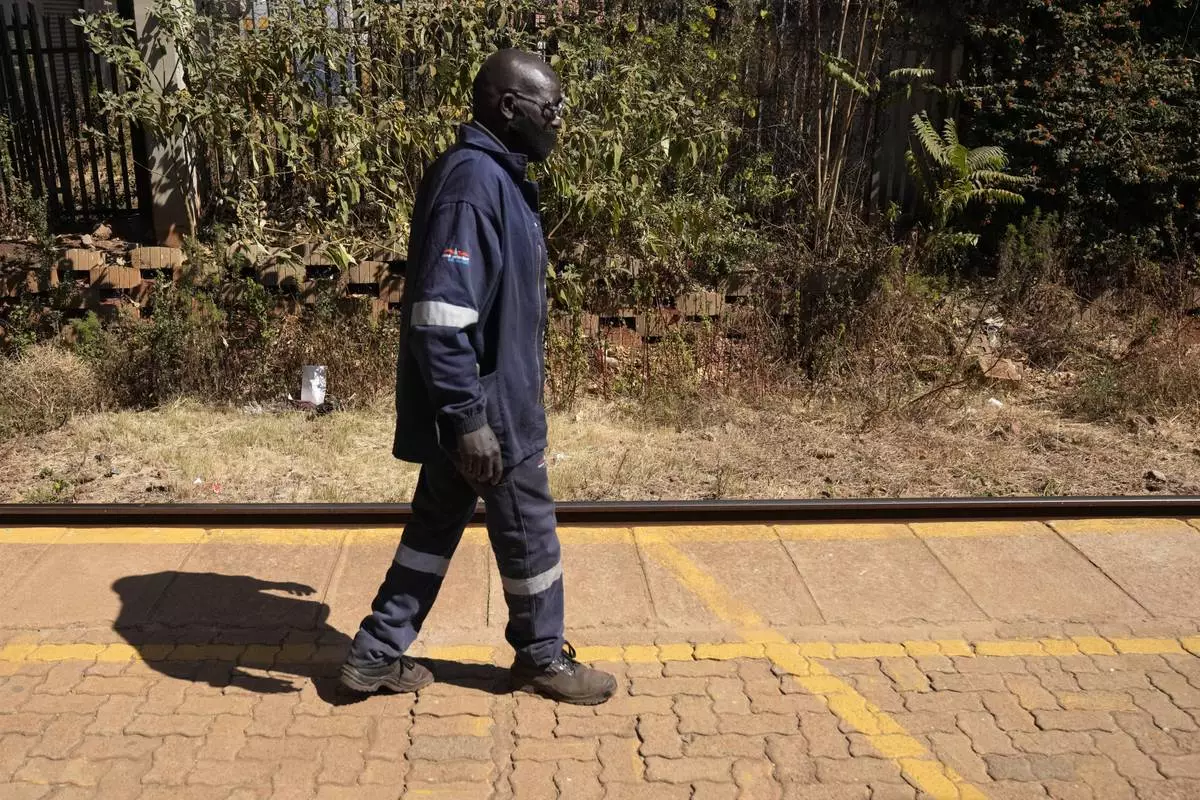
A patient walks around as he tests eye glasses outside the Phelophepa eye clinic carriage, in Tembisa, east of Johannesburg, South Africa, Thursday, Aug. 22, 2024. (AP Photo/Themba Hadebe)
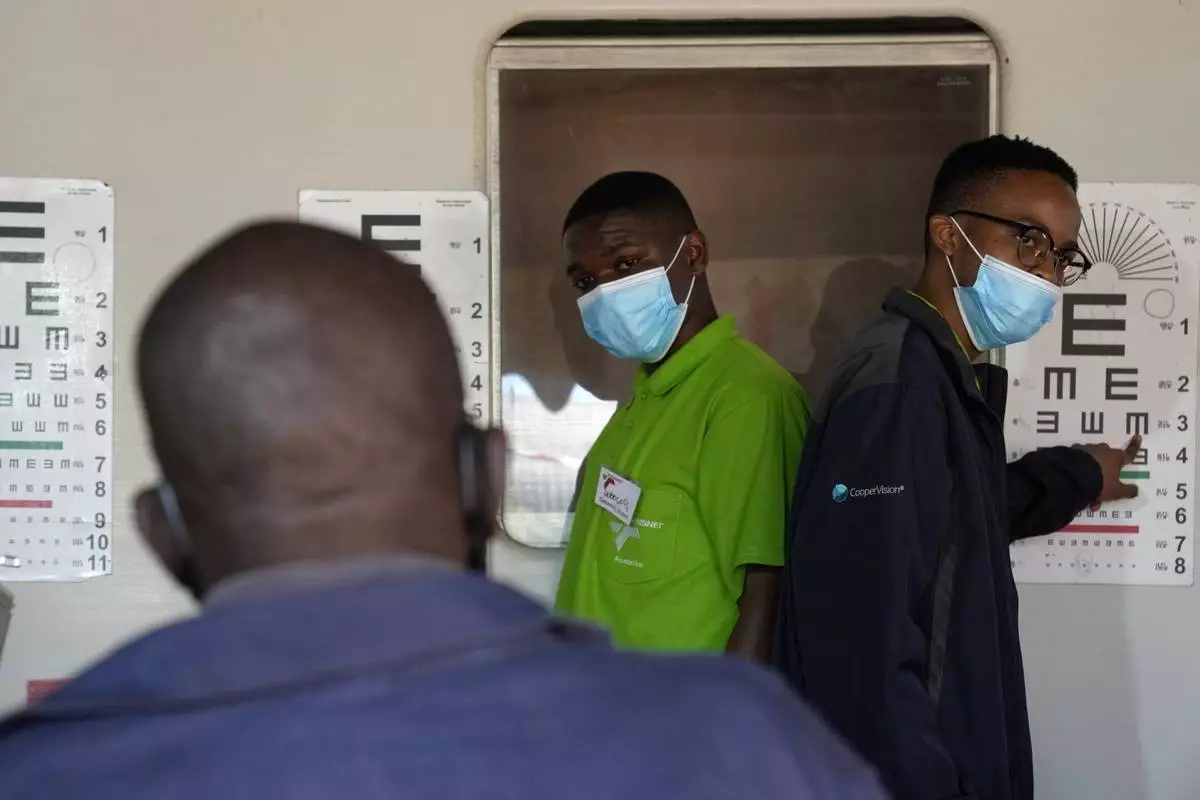
Optometry students carry out an eye test for a patient, outside the Phelophepa eye clinic carriage, in Tembisa, east of Johannesburg, South Africa, Thursday, Aug. 22, 2024. (AP Photo/Themba Hadebe)
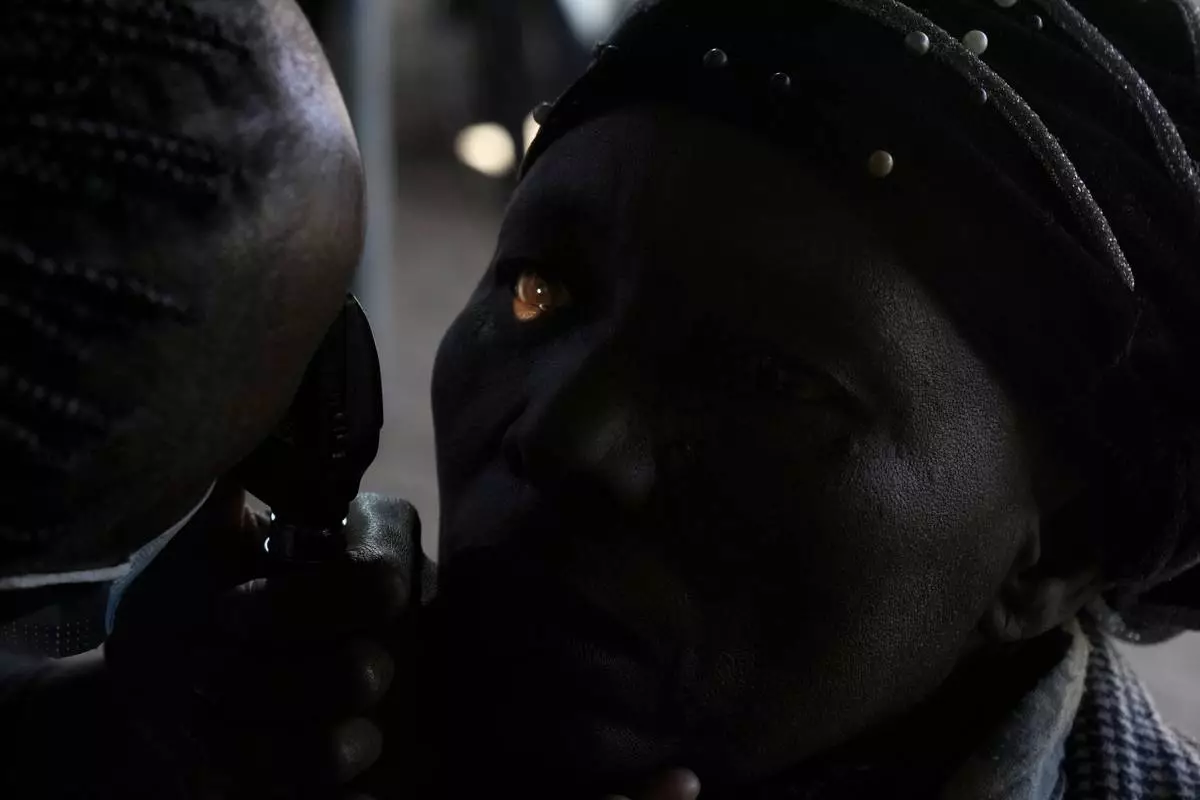
A patient has an eye examined by an optometry student, outside the Phelophepa eye clinic carriage, in Tembisa, east of Johannesburg, South Africa, Thursday, Aug. 22, 2024. (AP Photo/Themba Hadebe)
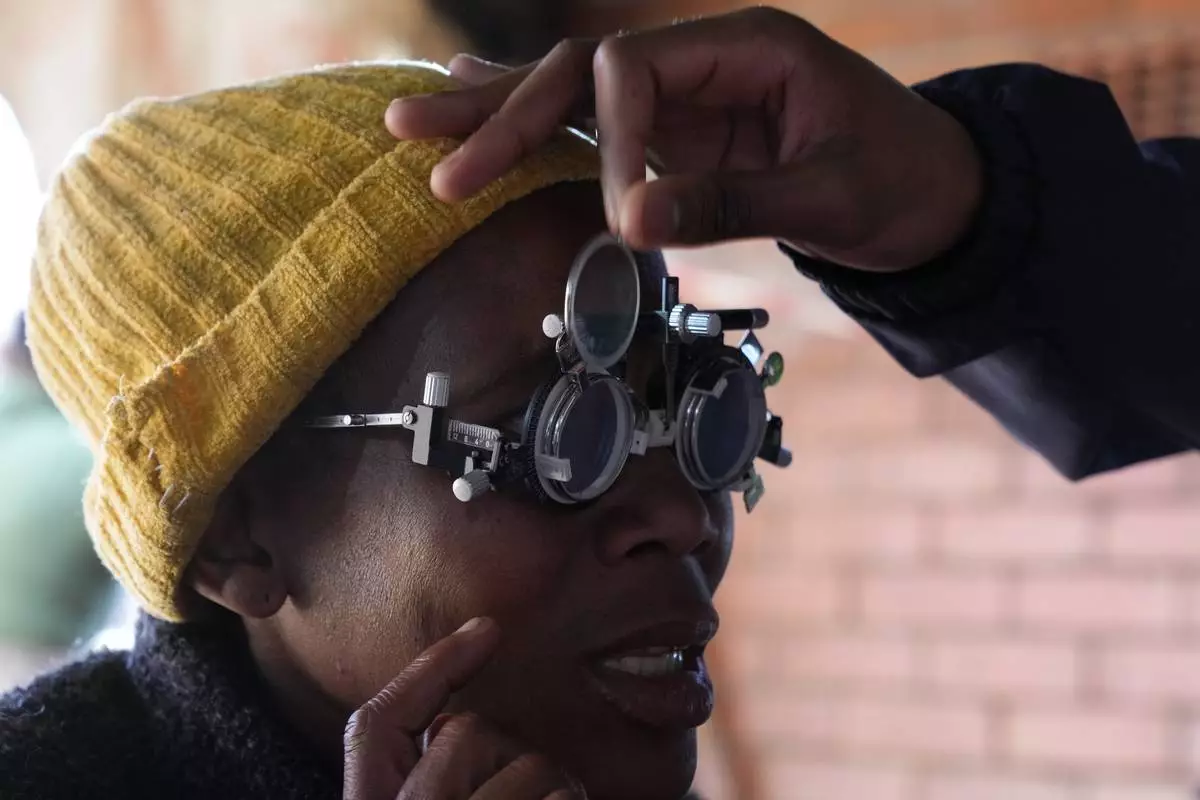
A patient eyes are tested for lenses to be made for a new pair of glasses outside the Phelophepa eye clinic carriage, in Tembisa, east of Johannesburg, South Africa, Thursday, Aug. 22, 2024. (AP Photo/Themba Hadebe)
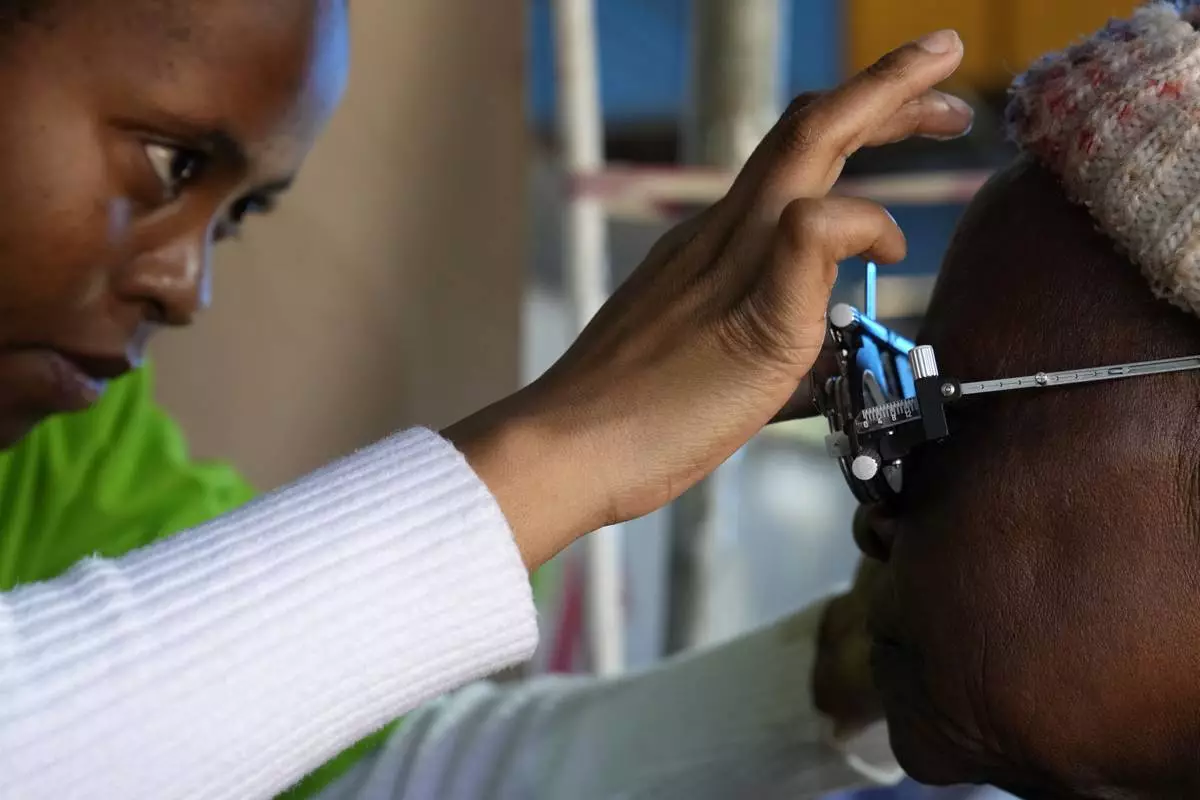
An optometry student, carries out an eye test on a patient for a new pair of glasses to be made, outside the Phelophepa eye clinic carriage in Tembisa, east of Johannesburg, South Africa, Thursday, Aug. 22, 2024. (AP Photo/Themba Hadebe)
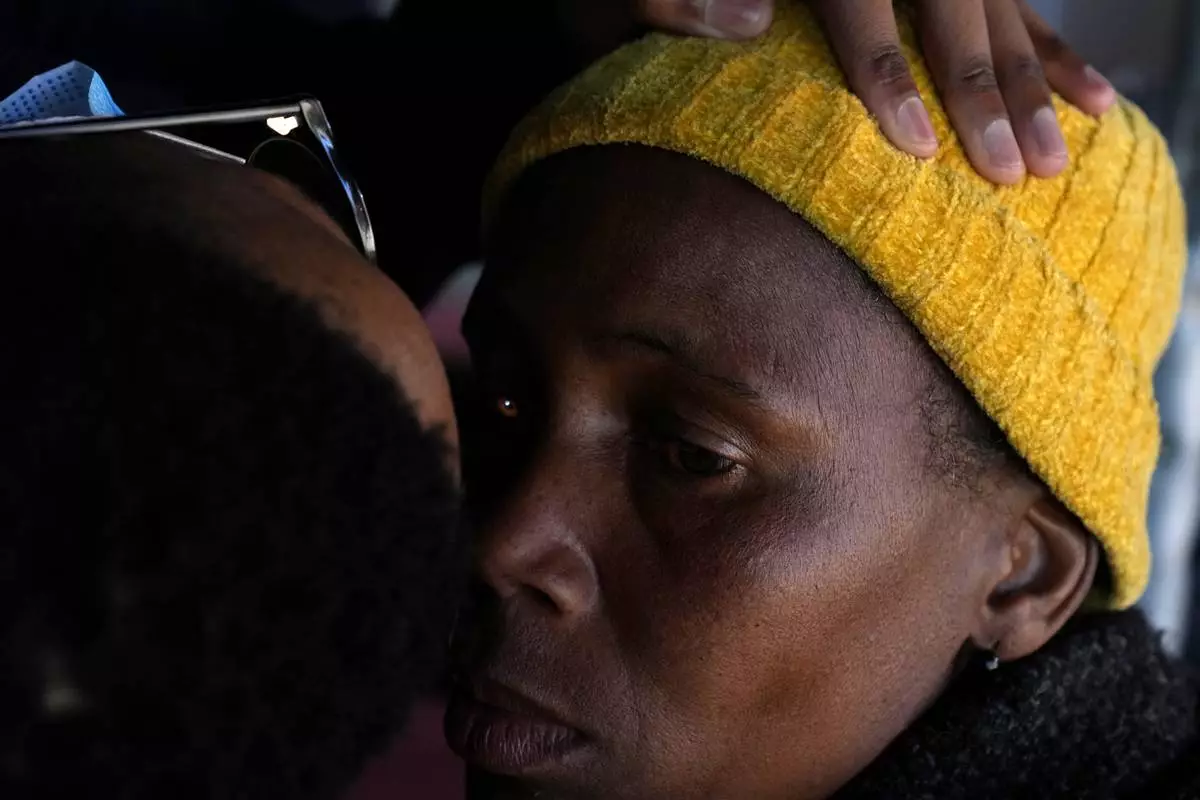
A patient has an eye examined by an optometry student, outside the Phelophepa eye clinic carriage, in Tembisa, east of Johannesburg, South Africa, Thursday, Aug. 22, 2024. (AP Photo/Themba Hadebe)

Patients queue for an eyes test, outside the Phelophepa eye clinic carriage, in Tembisa, east of Johannesburg, South Africa, Thursday, Aug. 22, 2024. (AP Photo/Themba Hadebe)

A healthcare worker stands at the door of the Phelophepa eye clinic carriage, in Tembisa, east of Johannesburg, South Africa, Thursday, Aug. 22, 2024. (AP Photo/Themba Hadebe)
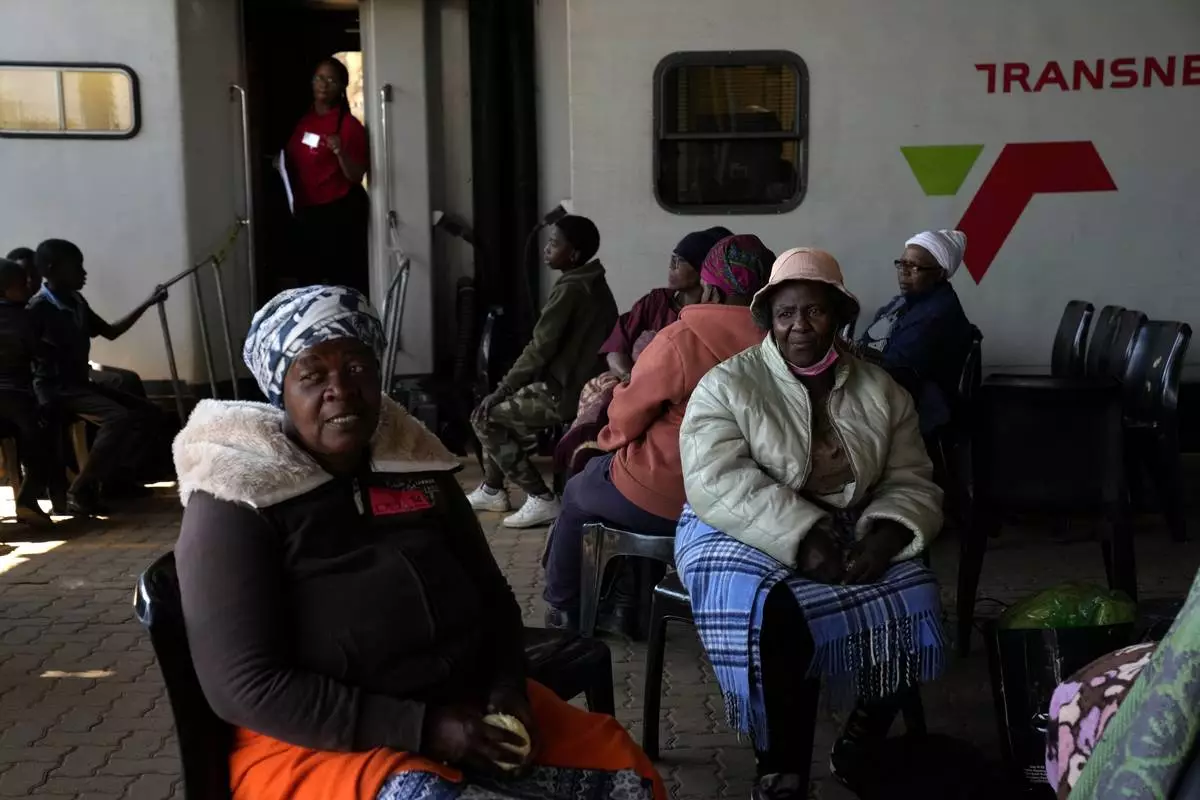
Patients queue for an eyes test, outside the Phelophepa eye clinic carriage, in Tembisa, east of Johannesburg, South Africa, Thursday, Aug. 22, 2024. (AP Photo/Themba Hadebe)
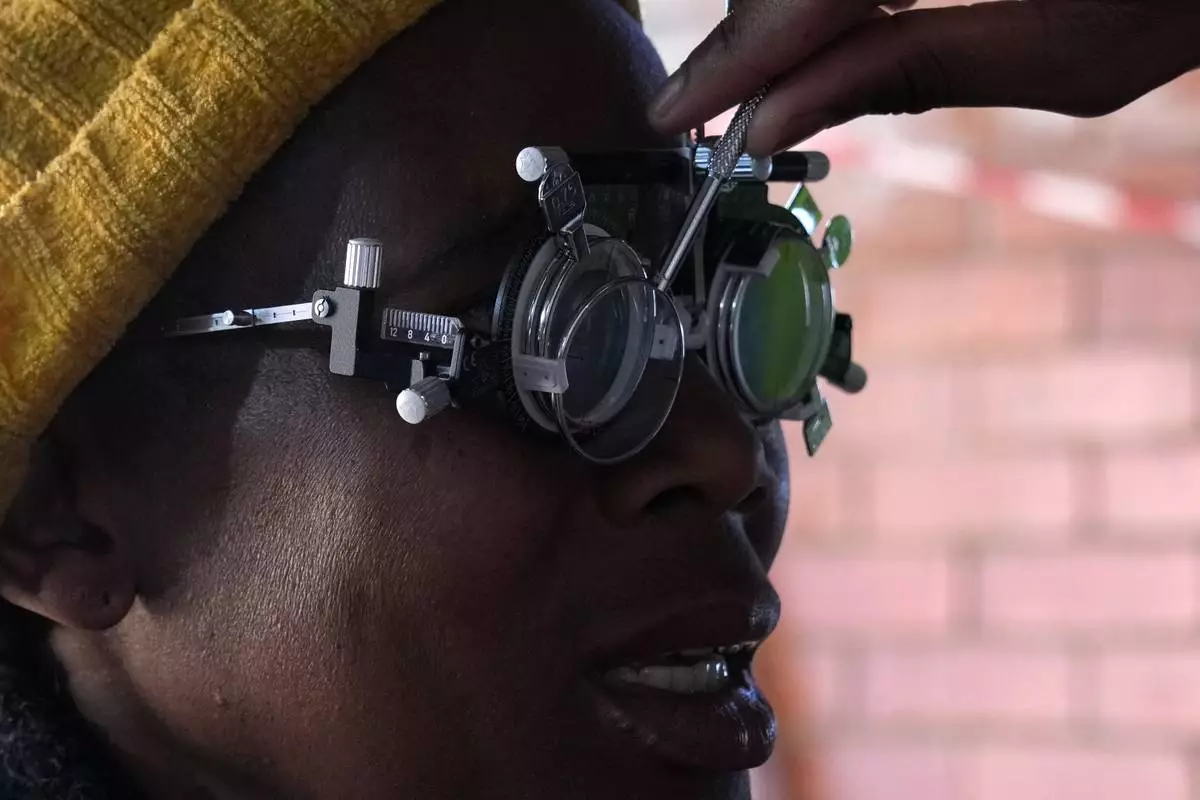
A patient eyes are tested for lenses to be made for a new pair of glasses outside the Phelophepa eye clinic carriage, in Tembisa east of Johannesburg, South Africa, Thursday, Aug. 22, 2024. (AP Photo/Themba Hadebe)
AVIGNON, France (AP) — A 71-year-old French man admitted in court Tuesday that for nearly a decade, he repeatedly drugged his unwitting wife and invited dozens of men to rape her while she lay unconscious in their bed.
His wife of 50 years, who has divorced him since his arrest, also got to speak, telling the court that she feels completely betrayed.
In a trial that has gripped France and raised awareness about sexual violence in the home and beyond, Dominique Pélicot told the court that he also raped his wife, Gisèle Pélicot, and that the 50 men standing trial alongside him understood exactly what they were doing.
“Today I maintain that, along with the other men here, I am a rapist,″ Dominique Pélicot testified. “They knew everything. They can’t say otherwise.”
Pélicot’s testimony marked the most important moment yet in a trial that has shocked the world. Although he previously confessed to investigators, his court testimony will be crucial for the panel of judges to decide on the fate of his co-defendants, who range in age from 26 to 74. Many of them deny having raped Gisèle Pélicot, saying her then-husband had manipulated them or that they believed she was consenting.
Many following the case also hope his testimony might help explain why Dominique Pélicot would subject the mother of his three children to such unconscionable abuse.
Gisèle Pélicot has become a hero to many rape victims and a symbol of the fight against sexual violence in France for agreeing to waive her anonymity in the case, letting the trial be public and appearing openly in front of the media. She shows up every day, passing through the courthouse security line behind men accused of raping her. As she left court during a break Tuesday, supporters brought her flowers.
After days of delay due to what his lawyers said was a kidney stone and urinary tract infection, Dominique Pélicot, seated in a wheelchair, testified that the charges against him are true. With his ex-wife looking on from the packed gallery and his voice trembling and barely audible at times, he started a long day of testimony trying to explain childhood traumas that he said scarred and molded him into the person he became.
“One is not born a pervert, one becomes a pervert,” Pélicot told the judges after recounting, sometimes in tears, being raped by a male hospital nurse at age 9 and being forced to take part in a gang rape at age 14.
Pélicot also said that for years, his father sexually abused a young girl his family had taken in, and that his brother later said their father had invited other men to do the same.
He regretted that his parents didn't let him continue his studies after he turned 14. He said that around that time, he tried to persuade his mother to leave the house with him, but “she never wanted to.”
“I don’t really want to talk about this, I am just ashamed of my father. In the end, I didn’t do any better,'' said Pélicot, who faces 20 years in prison if convicted.
After he spoke about his difficult upbringing, Gisèle Pélicot was given the opportunity to address the court.
“It is hard for me to hear this. For 50 years, I lived with a man. I couldn’t imagine even one second that he could have committed acts of rape,″ she said. “I trusted this man entirely.″
The two looked at each other, him from behind the dock’s glass window and her from the witness stand.
“I am guilty,” he told her. “I regret everything I did. I ask you for forgiveness, even if it is unpardonable.”
Asked if she wanted to respond, Gisèle Pélicot turned and left the stand.
When asked about his feelings toward his ex-wife, Dominique Pélicot said she didn't deserve what he did.
“From my youth, I remember only shocks and traumas, forgotten partly thanks to her,” he said in tears.
At that moment, Gisèle Pélicot put on her sunglasses.
Later, Dominique Pélicot said, “I was crazy about her. She replaced everything. I ruined everything.”
A supermarket security guard caught Pélicot in 2020 secretly shooting video up women’s skirts, according to court documents. During a search of his house and electronic devices, police found thousands of photos and videos of men engaging in sexual acts with Gisèle Pélicot while she appeared to be unconscious in bed.
With the recordings, police were able to track down most of the 72 suspects they were seeking, but not all.
In addition to the photos and videos of Gisèle Pélicot, investigators found photos of the Pelicots' daughter, Caroline Darian, and two daughters-in-law that were surreptitiously taken while they were in their underwear, getting undressed or taking showers, according to authorities.
While her mother has stayed remarkably calm throughout the trial, Darian walked out of the courtroom Tuesday as her father was being asked about photos of her that were found on his laptop.
″Excuse me, I’m going to vomit,″ she said angrily before rushing out. She has written a book about what happened to her family, called ″And I Stopped Calling you Daddy.″
After retiring, the Pélicots moved from the Paris region to a house in Mazan, a small town in the Provence region.
When police officers called Gisèle Pélicot in for questioning in late 2020, she initially told them her husband was “a great guy,″ according to legal documents. They then showed her some photos. She left and later divorced her husband.
Since Dominique Pélicot’s arrest, other cases have surfaced. He was fined after being caught shooting video of a women’s crotch in 2010 and required to see a psychologist. Gisèle Pélicot has said she never knew about this incident.
Under French law, the proceedings inside the courtroom cannot be filmed or photographed. Dominique Pélicot has been brought into the court through a special entrance that's inaccessible for the media, because he and some other defendants are being held in custody during the trial and can't be filmed. Defendants who are not in custody have been arriving at the courthouse wearing surgical masks or hoods to avoid having their faces filmed or photographed.
Among those hoping to secure a seat to watch the Tuesday's proceedings was Bernadette Tessonière, a 69-year-old retiree who lives a half-hour drive from Avignon, where the trial is taking place.
“How is it possible that in 50 years of communal life, one can live next to someone who hides his life so well? This is scary,” she said.

Gisele Pelicot arrives at the Avignon court house, in Avignon, southern France, Tuesday, Sept. 17, 2024. Her ex-husband admitted in court that for nearly a decade, he repeatedly drugged his unwitting wife and invited dozens of men to rape her while she lay unconscious. (AP Photo/Diane Jantet)

Gisele Pelicot arrives at the Avignon court house, in Avignon, southern France, Tuesday, Sept. 17, 2024. Her ex-husband admitted in court that for nearly a decade, he repeatedly drugged his unwitting wife and invited dozens of men to rape her while she lay unconscious. (AP Photo/Diane Jantet)
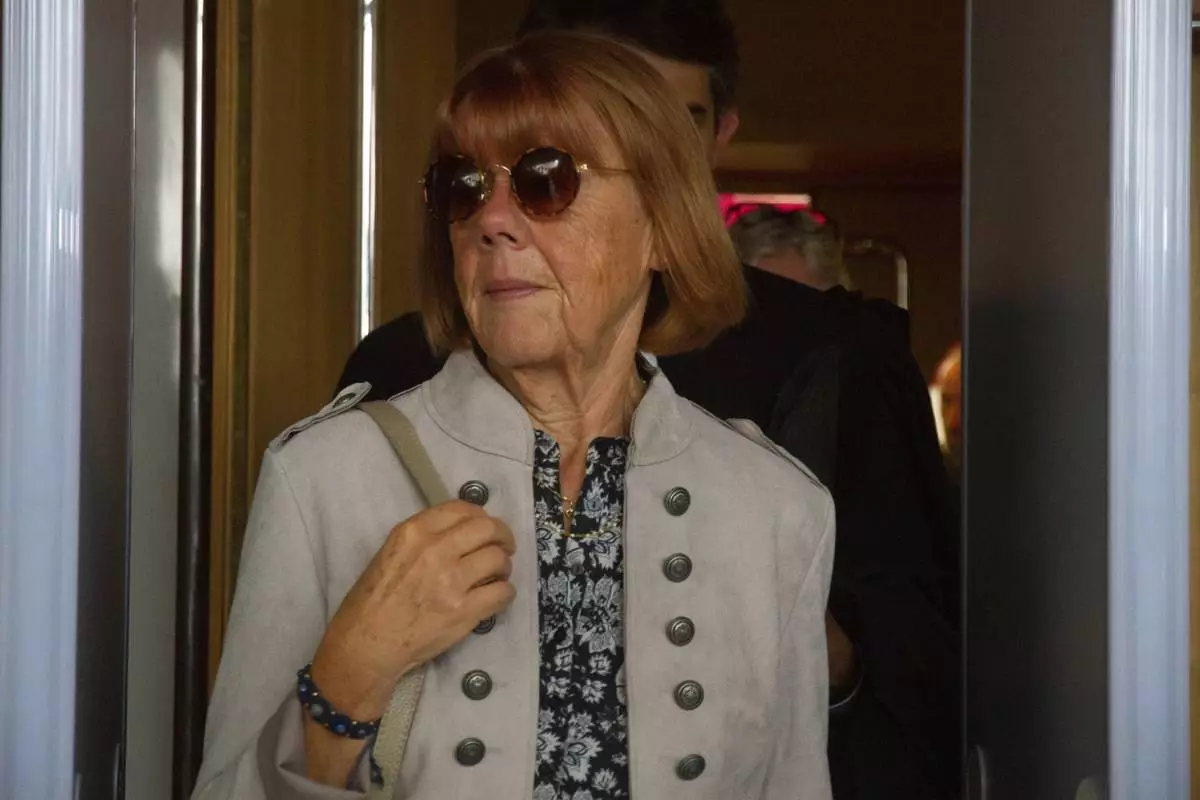
Gisele Pelicot exits the Avignon court house, in Avignon, southern France, Tuesday, Sept. 17, 2024, after her ex-husband admitted in court that for nearly a decade, he repeatedly drugged his unwitting wife and invited dozens of men to rape her while she lay unconscious. (AP Photo/Diane Jantet)
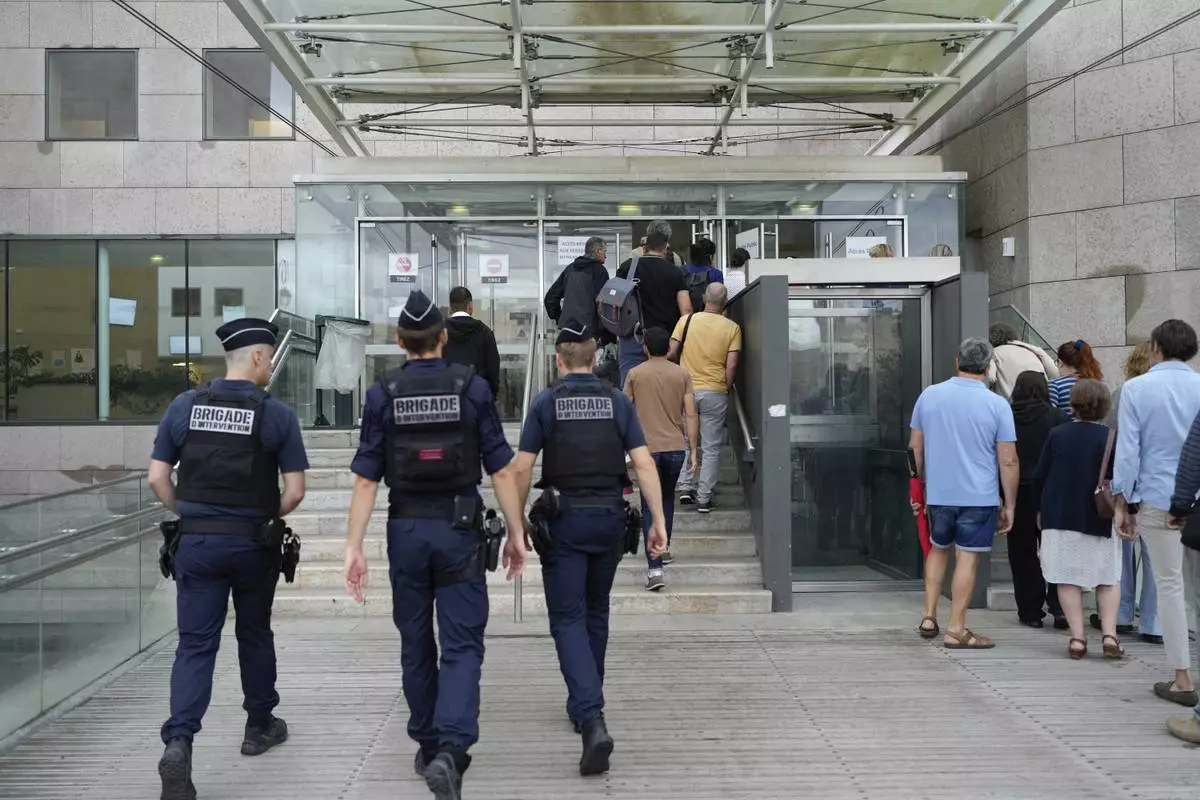
FILE - Police officers walk in the Avignon court house prior to the trial of Dominique Pelicot, in Avignon, southern France, Thursday, Sept. 5, 2024. (AP Photo/Lewis Joly, File)

FILE - Gisele Pelicot speaks to media as she leaves the Avignon court house, southern France, Thursday, Sept. 5, 2024. (AP Photo/Lewis Joly, File)
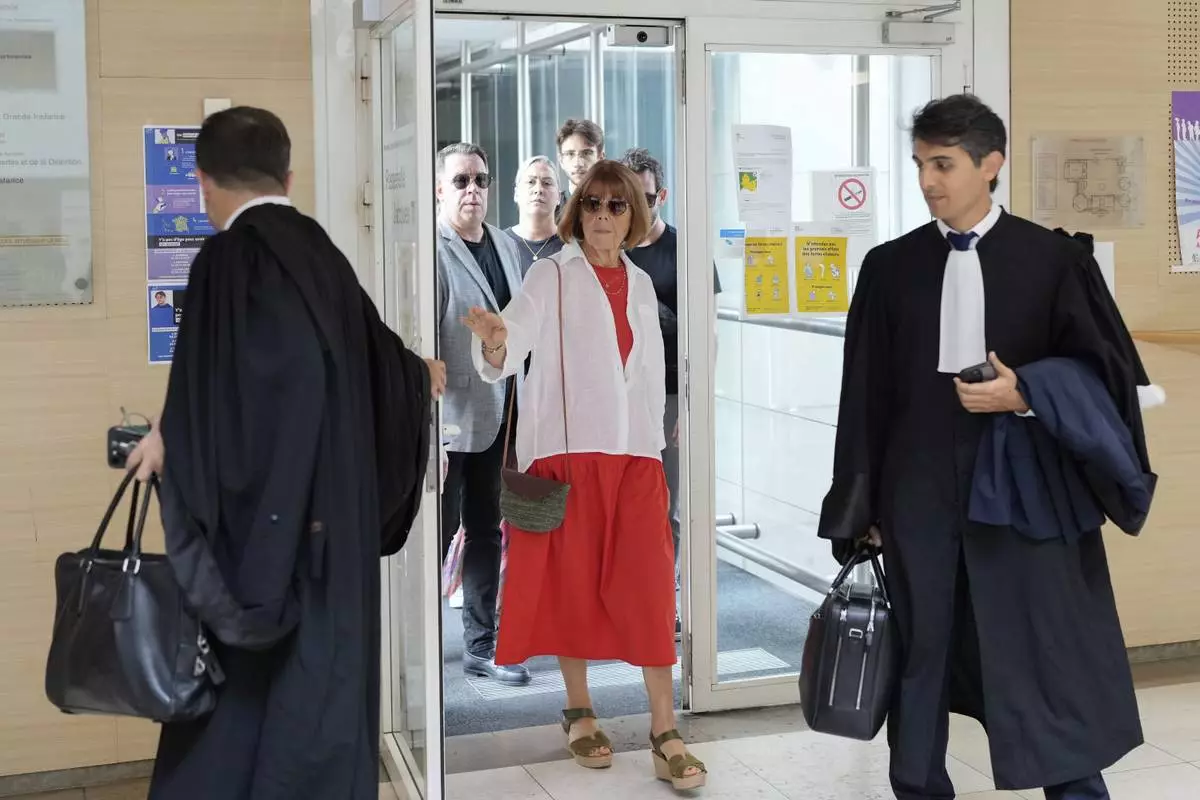
FILE - Gisele Pelicot, left, arrives in the Avignon court house, in Avignon, southern France, Thursday, Sept. 5, 2024. (AP Photo/Lewis Joly, File)

FILE - Gisele Pelicot, left, arrives in the Avignon court house, in Avignon, southern France, Thursday, Sept. 5, 2024. (AP Photo/Lewis Joly, File)















